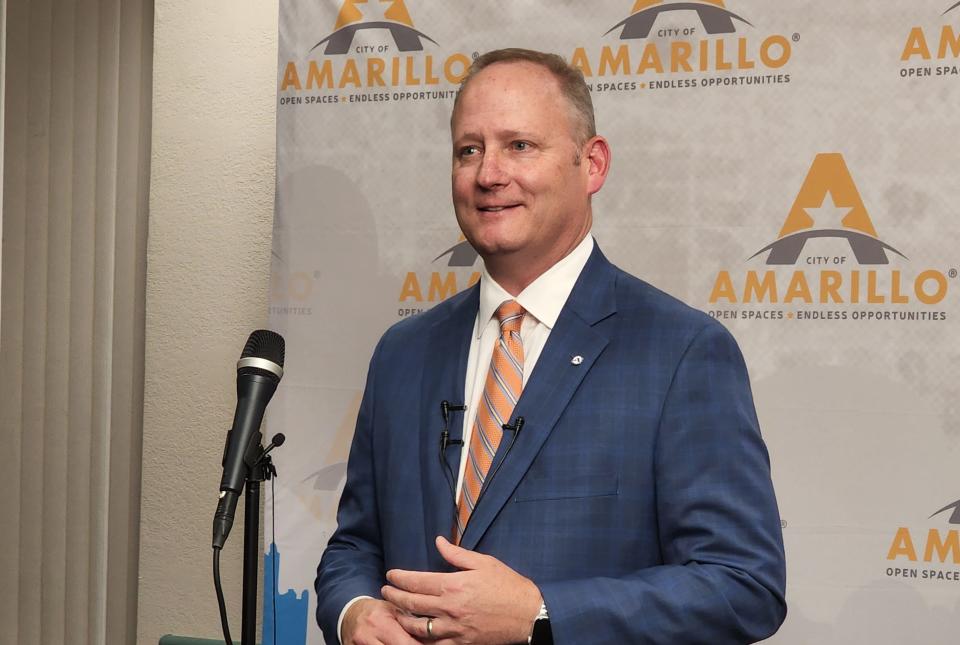Feb. 4—Lenae Wilson read every word of her federal student loan contract.
By the time she graduates from St. John’s College in 2025, Wilson said, she’ll have taken out between $20,000 and $25,000 in federal student loans, not including interest.
Even for a Johnnie who already had an associate degree in business, Wilson said the contract was dense and convoluted, filled with legal citations and jargon. And it felt disconnected from the future, she recalled; it didn’t offer a clear window to what her future with loans might hold.
“Give me a bigger picture. Give me a [glimpse] of what it could look like,” Wilson said.
A bill before the New Mexico Legislature this session seeks to ease some of the confusion surrounding student loans. Known as the state’s Student Loan Bill of Rights, House Bill 71 would regulate student loan servicers; delineate unfair trade practices; specify additional rights for some cosigners and disabled borrowers; and create the office of the student loan ombudsman, intended to help students register complaints and gather information about their loans before and after borrowing.
The bill was approved by the House Education Committee in a 7-3 vote and will move next to the House Commerce and Economic Development Committee.
Funding for the bill — expected to cost between $285,000 and $570,000 annually, according to a fiscal impact report — is not yet included in the state’s budget bill. However, Chandler said in an interview she expects the money to come through.
“People are really suffering from the weight of these loans, and yet there’s very little oversight of a number of the services and providers,” Chandler said.
In some ways, Wilson was lucky.
A mentor in her Colorado hometown steered Wilson away from private student loan offerings and advised her to continuously pay off unsubsidized federal student loans — for which borrowers are responsible for interest accrued on the loan while they’re in college, unlike subsidized loans — to avoid mounting interest.
And like most Johnnies, Wilson also secured grants and scholarships from the college. “I probably wouldn’t be here without all the scholarships,” she said.
St. John’s has gone to extraordinary lengths to limit the financial burden of attendance for its students, decreasing annual tuition by thousands of dollars and piloting a financial literacy course, expected to be available to all freshmen in fall 2024.
Charlie Bergman, a longtime financial literacy instructor and former head of the college’s Office of Personal and Professional Development, teaches St. John’s financial literacy course.
The problem with debt is that it’s a difficult hole to climb out of, Bergman said. Student loans are particularly tricky, he added, because they’re often offered to young people who don’t have a complete understanding of the implications of the debt they’re taking on and couldn’t afford college otherwise.
“It’s a very systemic problem, so you’re going to have people make mistakes,” Bergman said. “When they get in trouble, I think some sort of support makes a lot of sense.”
That support piece is where New Mexico’s proposed Student Loan Bill of Rights comes in.
The bill does three major things, Winston Berkman-Breen, legal director of the nationwide Student Borrower Protection Center, explained to the House Education Committee on Monday.
First, HB 71 would create licensure processes for all student loan servicers, allowing for state oversight in their business practices.
Second, the bill would establish additional consumer protections for borrowers by outlining unconscionable trade practices for student loan servicers. In particular, Berkman-Breen told lawmakers, it would require private student loan servicers to adhere to standard protections for federal student loans, including ensuring cosigners have equal access to student loan information and discharging student loans upon proof of a permanent disability.
This is an important change, the bill’s co-sponsor, Rep. Patricia Roybal Caballero, D-Albuquerque, said during the committee meeting. She described private student loan servicers as “predatory.”
“I speak from personal experience. … I am one of these loan recipients that has been not only discriminated against but unable, through all my years of having been in school, to seek some sort of ombuds’ help,” Roybal Caballero said.
Finally, HB 71 would institute a statewide student loan ombudsman, tasked with reviewing complaints from borrowers and disseminating information to the public about the office and student loans. Chandler said she envisions the ombuds’ office as a “full-service assistance program,” able to help students with federal or private student loans.
A one-stop-shop for student loan resources would be a useful tool, Wilson said, as long as it’s accessible to students and avoids both fear mongering and dismissing students’ fears. Especially if the ombuds connected with students through college financial aid offices, she said, it could be a good resource to cut through student loan confusion.
HB 71 did not move through the committee without critique.
House Minority Leader Ryan Lane, R-Aztec, expressed concerns on behalf of the lenders, arguing the bill would place additional burdens on financial institutions and disabled borrowers’ loans shouldn’t be discharged without proof they can’t pay back their loans.
“I remember being an 18-year-old legal adult,” Lane said. “My mind was probably more like an adolescent in a lot of ways and didn’t understand sort of the long-term indications of going into debt. … I appreciate sort of the parameters of this bill — I like the concept of an ombudsman — but there’s a couple sections I have some heartburn with.”
There’s another piece of the solution to wide-reaching student loan woes that still needs to be implemented, Bergman said: high school financial literacy courses.
Under current law, financial literacy must be offered at every high school in the state, but students aren’t required to take it. The result: Most students don’t take it, even though it can count as an elective or a math class.
A bill altering the state’s high school graduation requirements, also winding its way through the Legislature this session, would fold personal financial literacy into required units of social studies, in addition to maintaining the mandate all schools offer the full course.
Bergman, who also taught financial literacy to high schoolers at Albuquerque Academy, said he thinks the class should be a requirement to safeguard students from poor financial decisions — regarding student loans or anything else.
“This kind of systematic literacy — like your ABCs or good health or good diet — just has to be baked into the K-12 curriculum because it’s like an inoculation. If you get inoculated once, you’re inoculated for life,” he said.
Until that happens, Bergman said the proposed Student Loan Bill of Rights will serve as a good stopgap.
Signup bonus from



